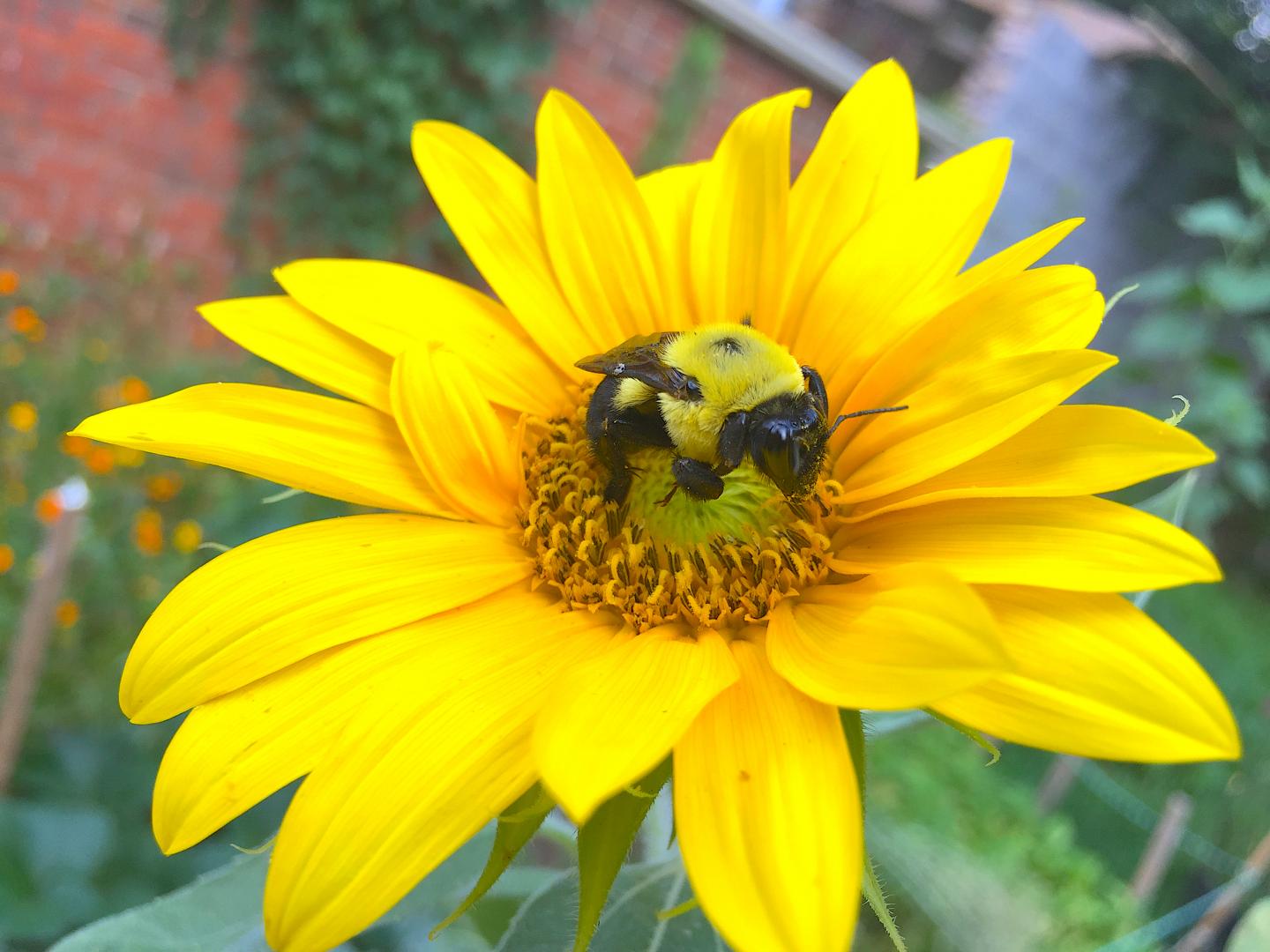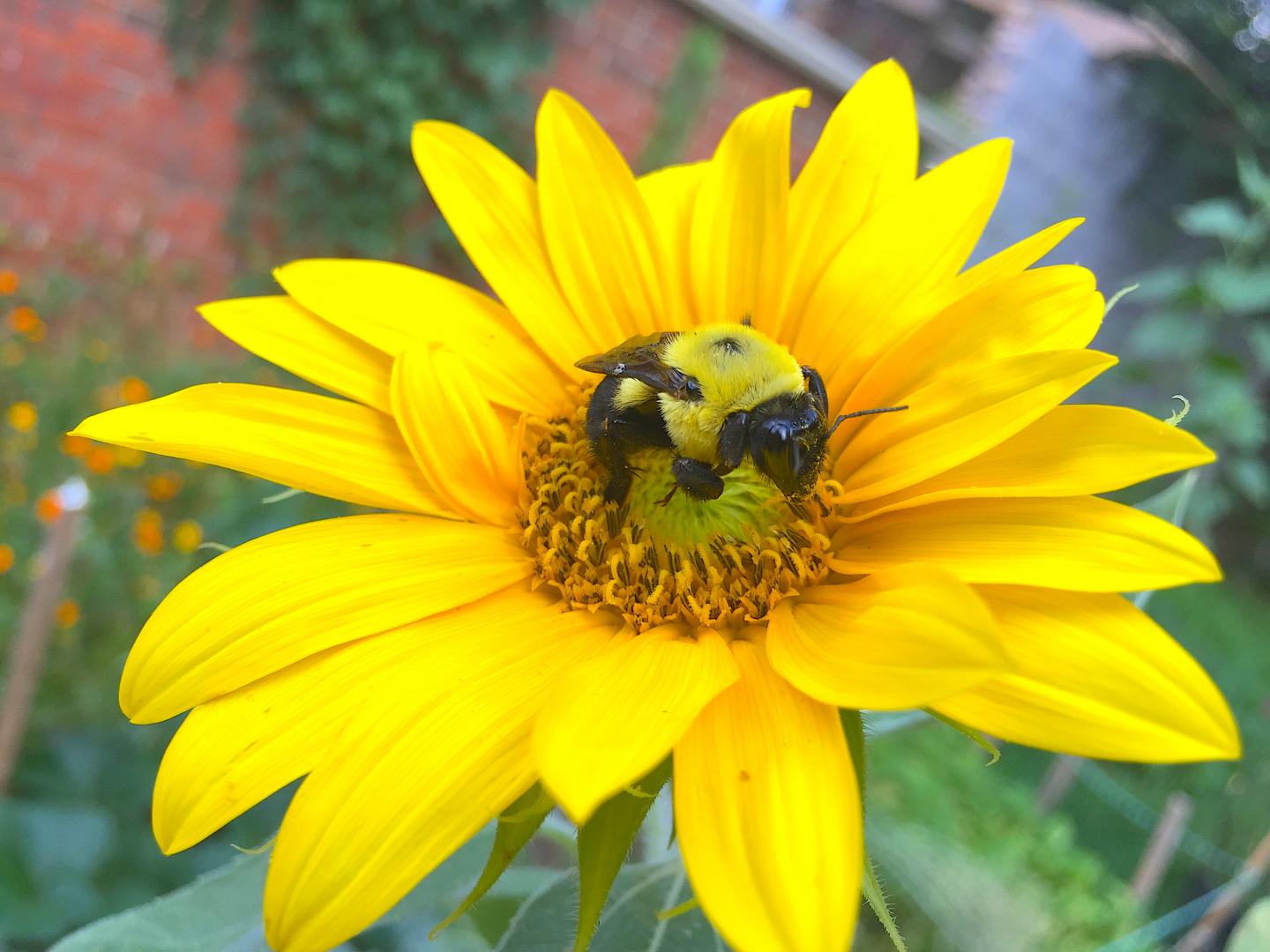
Credit: UMass Amherst/Jonathan Giacomini
AMHERST, Mass. – A new study by Jonathan Giacomini and his former advisor, evolutionary ecologist Lynn Adler at the University of Massachusetts Amherst, with others, found that eating sunflower pollen dramatically and consistently reduced a protozoan pathogen infection in bumble bees and reduced a microsporidian pathogen of the European honey bee, raising the possibility that sunflowers may provide a simple solution to improve the health of economically and ecologically important pollinators.
Adler explains, "There is a whole literature of plants that use chemicals to protect themselves against insects. Monarch butterflies are the prime example; they are insensitive to the poison in milkweed plants they eat, but it makes them poisonous in turn to their predators. For some reason, no one had thought about this in terms of bees, but they do eat plant pollen and nectar."
The ecologist says she has long been interested in whether "floral rewards" like nectar and pollen might have protective effects against disease and parasites for pollinator insects, but her own experimental results with nectar were inconsistent. She points out that, "compared to nectar, pollen has far more concentrated defensive chemicals."
The current study began as an honors undergraduate experiment by first author Jonathan Giacomini, who is now a graduate student of co-author Rebecca Irwin at North Carolina State University. Details are in the current issue of Scientific Reports.
The researchers studied a common parasitic infection of bumble bees caused by the protozoan Crithidia bombi and conducted a pilot study of the microsporidian Nosema ceranae in honey bees. Adler says up to 80 percent of bumble bees found in western Massachusetts where the study took place are infected with Crithidia. It has been shown to impair learning and foraging, reduce lifespan and the likelihood of queens founding new colonies. "In the lab it may be benign," she notes, "but with the stress of outdoor life it becomes more of a problem for bees."
"From the plant's point of view, pollen is a gamete and you want the pollinator to come and eat your nectar and carry the pollen to fertilize another plant, but pollinators do eat pollen because it's a great protein and fat source, which is difficult for plant eaters to find. Any vegetarian will tell you that," Adler quips.
For this work, the researchers infected groups of bees and fed them one of four different pollen diets: sunflower, buckwheat, rapeseed or a fourth mix of all three, then measured Crithidia infection in the insects.
Adler reports, "Sunflower pollen was amazing. When the bees ate sunflower pollen most of them just didn't have detectable Crithidia counts. It was like nothing we'd ever seen with nectar, it was really dramatic and very exciting." She also reports that mortality was not different for bees receiving the different treatments after one week. In small bee colonies they studied, all bees had better reproduction when reared on sunflower compared to buckwheat pollen, but slightly lower adult survival.
"We realize that this is not a cure to all bee diseases, and we haven't looked at many other pathogens yet, but the effects we have seen are dramatic," the ecologist notes.
Further, "Bees do not do well eating just sunflower, but it may be part of a solution. They are going to need other and varied food for their health, but the cool thing about sunflowers is that they are grown agriculturally and are also a common wildflower native to North America. Incorporating them into pollinator gardens is a simple thing we can do to help bees."
The team also sampled bees from farms around Amherst and measured how much sunflower was growing at the farm and the bees' Crithidia load. "There were a lot of uncontrolled variables, but still the more sunflowers were grown at the farm, the lower the Crithidia load for the bees at that farm," Adler says.
The authors suggest that "given consistent effects of sunflower in reducing pathogens, planting sunflower in agroecosystems and native habitat may provide a simple solution to reduce disease and improve the health of economically and ecologically important pollinators."
###
This work was supported by the National Science Foundation, the U.S. Department of Agriculture and UMass Amherst's Commonwealth Honors College.
Media Contact
Janet Lathrop
[email protected]
413-545-2989
@umassscience
http://www.umass.edu
Related Journal Article
http://dx.doi.org/10.1038/s41598-018-32681-y





